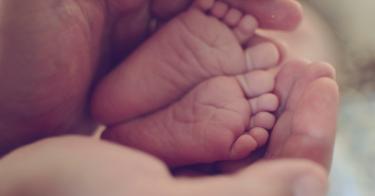Five-year-old Micah Pickering made an appearance on Capitol Hill on Sept. 26 to put a face to the proposed Pain Capable Unborn Child Protection Act.
The youngster came dressed for the occasion in a suit, vest, and tie. He held hands with his parents, Danielle and Clayton Pickering, from Iowa City, Iowa, as House Majority Leader Rep. Kevin McCarthy, R-Calif., announced he would bring the pro-life legislation to the House floor on Oct. 3.
The bill would outlaw abortions at 20 weeks, the age at which studies show unborn infants can feel pain. It is designed to protect the likes of Micah, who was born prematurely at 20 weeks.
Micah received intensive care as an infant and is now a healthy, normal child. He is living proof that children born as young as 20 weeks post-fertilization have the potential to thrive with appropriate medical care and deserve legal protection.
Members of Congress with Micah Pickering, born at 20 weeks and now a healthy young man! #ProLife #paincapable pic.twitter.com/iLlFrPoQQx
— Susan B Anthony List (@SBAList) September 26, 2017
McCarthy said: “This legislation is for children like Micah. It’s about drawing a line when babies have grown for 20 weeks, when they can feel pain … . That’s when we can all agree that they should be protected.”
Micah’s story highlights the scientific facts underlying the Pain Capable Act.
Embryological studies show that at 20 weeks, babies have developed pain mechanisms: The nervous system develops as early as six weeks; the first sensory receptors for pain by seven weeks; and nerve synapsesby eight weeks. Connections between the spinal cord and the thalamus—which function for pain perception—are almost complete at 20 weeks. Brain scans also indicate fetal response to pain.
In fact, studies suggest that the younger the infant, the more intensely they can feel pain.
Scientists have noted that the earlier a premature infant is born, the more pain-sensitive they are, since they have yet to develop pain inhibitors, which occurs at 34 to 36 weeks of gestation. This makes unborn, preterm, and premature babies like Micah hypersensitive to pain.
When Micah was born, doctors kept him strongly medicated to minimize his pain and discomfort. Thanks to early, active medical care, he is now enjoying a healthy and happy childhood.
Not all infants are so lucky. Unborn children aborted after 20 weeks feel, and feel intensely, the pain of late-term abortion in its myriad forms, whether it be bleeding to death following dismemberment (dilation and evacuation abortion) or dying by salt poisoning in the amniotic sac. (Warning: The link features illustrations that may be disturbing to some readers.)
That’s why Micah made the trip to Capitol Hill; namely, to expose lawmakers to the ugly truth about late-term abortion and for Congress to take a stand against this violent and excruciatingly painful practice.
The Pain Capable Act would give more children like Micah the chance to experience full lives, too.
Anyone who claims to be pro-science ought to pay heed to the Pain Capable Act. The bill highlights what science tells us about life in utero and affirms the unborn as unique and distinct human beings, capable of suffering.
In the words of McCarthy, Micah is the “face of the pro-life movement”—and with those big, brown eyes, it’s a face that will be hard to ignore.
This piece originally appeared in The Daily Signal



